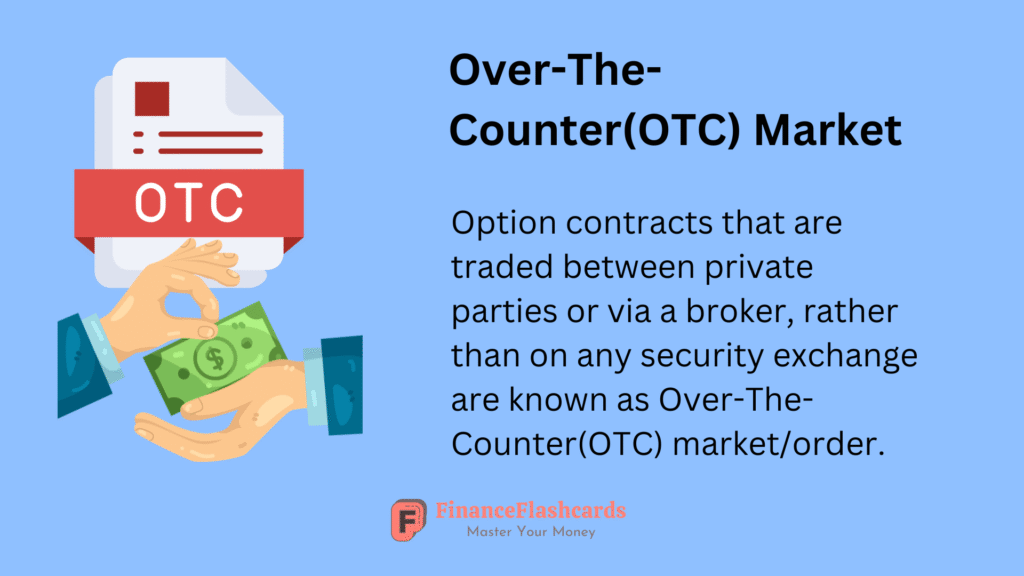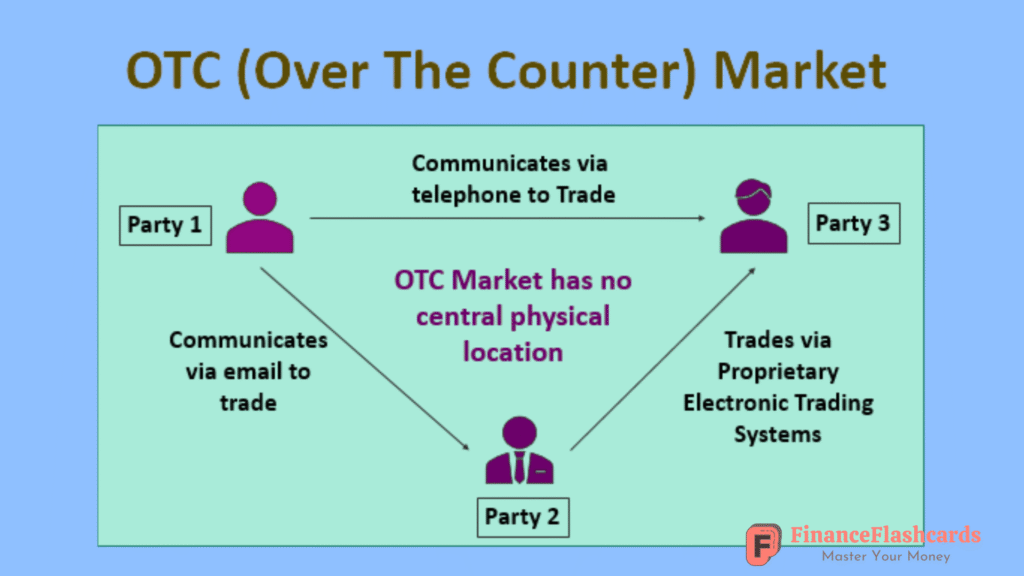Option contracts that are traded between private parties or via a broker, rather than on any security exchange are known as Over-The- Counter(OTC) market/order.
Table of Contents
Basics Of the OTC Market
When we want to buy stocks or bonds, we buy them from exchanges, but not everything can be traded on an exchange. Suppose you live in India and you want to pay for your CFA examination in the next 6 months, and you are worried that INR will depreciate with respect to USD; in other words USD/INR rate might go up.
So, you called your bank and asked them for a private OTC forward contract. This forward contract will help you from INR depreciation, and this contract is not traded on any exchange — it’s a direct, negotiated deal between you and the bank.
This is just one example of OTC contracts; securities traded on OTC can include stocks, bonds, derivative instruments like options, swaps and even cryptocurrency.

Securities that trade OTC include
Stocks: Stocks of small companies that don’t have enough resources to trade on the stock exchanges are traded on the OTC market, sometimes also referred to as the Grey Market.
Bonds: Unlike shares of a company that trade on stock exchanges, most corporate bonds trade over-the-counter (OTC)
Derivatives: Derivatives can also be traded OTC with complex instruments such as CDS on mortgage-backed securities. The OTC market provides greater flexibility to the managers.
Currencies: OTC is used to hedge the risk of currency depreciation, which enables the direct negotiation between buyers and sellers.
Commodities: Market participants also use OTC to hedge commodity products like wheat, corn, soy and more.

How To Trade in OTC Market
- Choose a broker/counterparty: Make sure you choose a reputed broker or trusted counterparty since the OTC market is not regulated, which increases the counterparty risk.
- Decide which instrument you want to trade: Choose the instrument, analyse the requirement and then only initiate a trade because the OTC market is risky and mostly use for hedging purposes.
- At expiry: At expiry, settle the contract by either delivering/buying the instrument or you can also do cash settlement (Most OTC contracts are cash-settled.)
Pros and Cons of OTC Market
OTC market provides greater flexibility and customisation to the managers and an opportunity to trade in small and unique securities.
| Pros (Advantages) | Cons (Disadvantages) |
|---|---|
| Flexible & customizable contracts | Higher counterparty/default risk |
| Access to small or unique securities | Less transparency in prices |
| Lower regulatory requirements | Lower liquidity |
| Often cheaper, fewer listing costs | Harder to find buyers/sellers |
| Useful for hedging specialised risks | Wider bid–ask spreads |
The Bottom Line
Investors can trade stocks, bonds, currencies, and other financial assets that aren’t available on national exchanges in the over-the-counter (OTC) market. There are less laws and regulations in these marketplaces, which may be advantageous or disadvantageous.
Individuals trade securities directly, frequently with the assistance of a broker-dealer network like the OTC Markets Group. Not all OTC securities are created equal. Given the laxer restrictions in existence, separating the wheat from the chaff can be difficult and bring both opportunity and risk.

